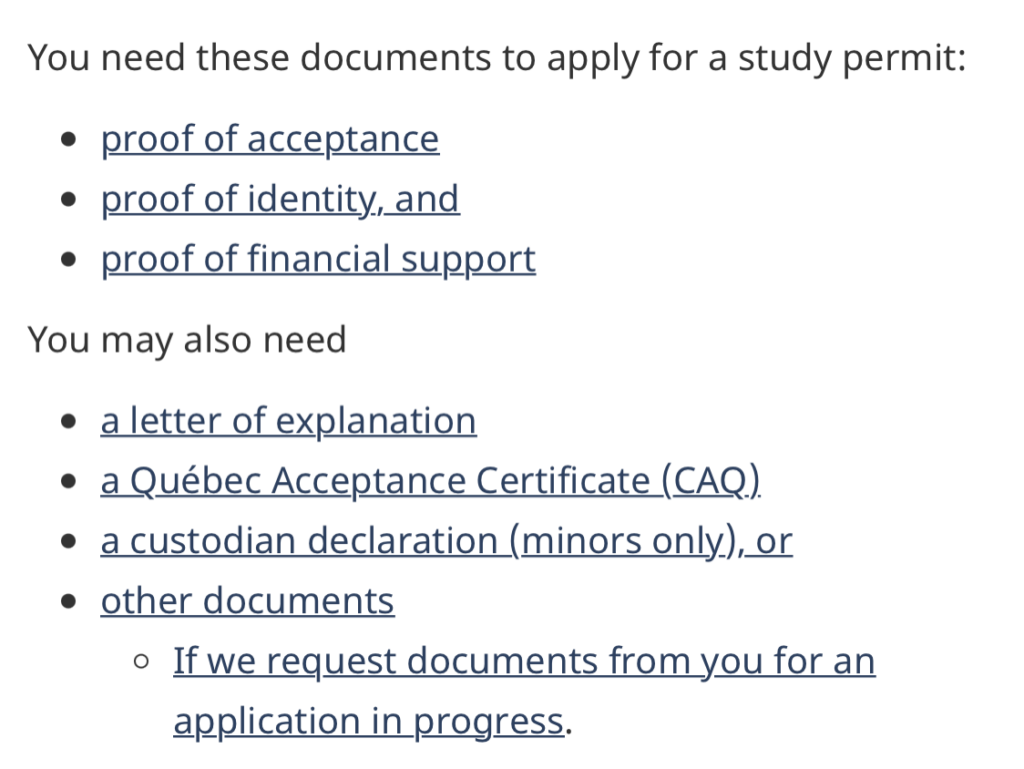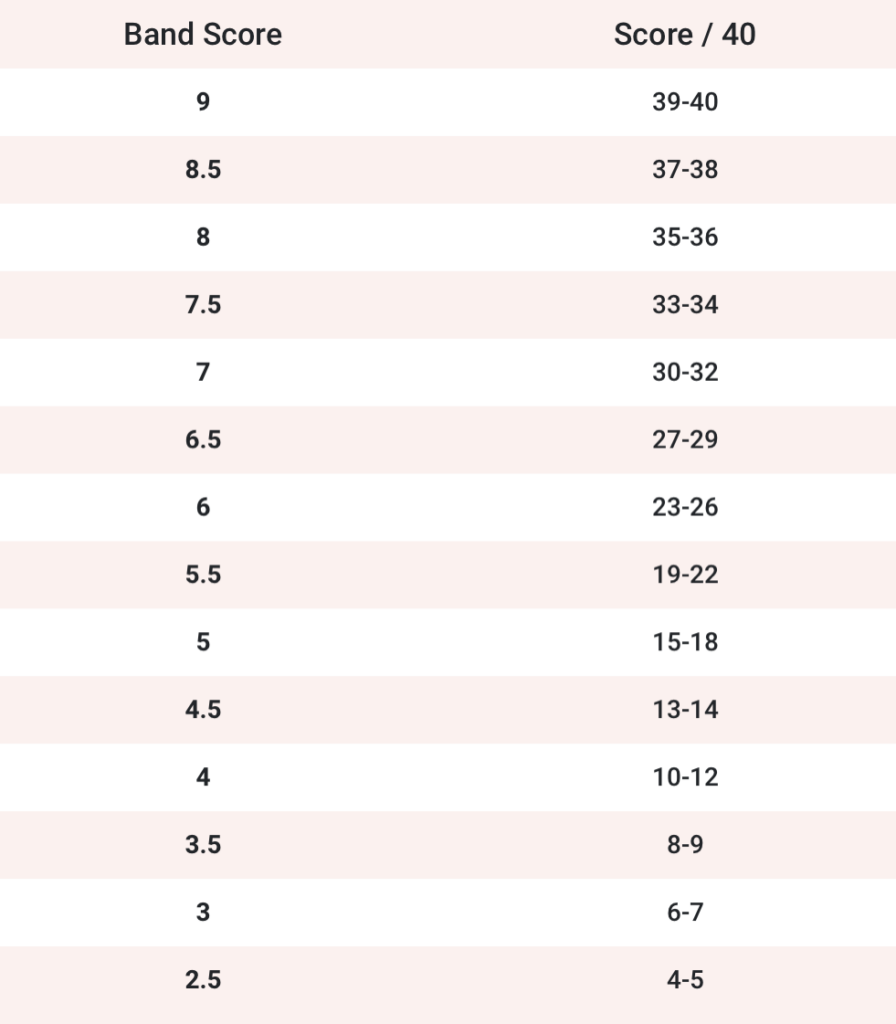The International English Language Testing System (IELTS) is designed to help you study in Canada where English is the native language.
There will usually be an IELTS score for Canada set by the university. So, every university will demand a different score.
The test rates your ability to listen, read, write and speak in English. IELTS is graded on a scale of 1-9.
There are two types of IELTS tests: Academic and General. For getting into colleges, you need to take the IELTS Academic. In this article we will cover all important information about IELTS Academic including:
- IELTS band guide
- Top 20 universities with 5.5 – 6.5 band requirement for Canada
- Universities in Canada Without IELTS
- Alternatives to IELTS score for Canada
- Find more universities in Canada without IELTS with SelectRight.
- Tips to get the required IELTS score for Canada
Before we get into band requirements for Canada, Universities in Canada Without IELTS, let’s understand the IELTS bands.
Why study in Canada?
Before we get into details about IELTS requirements for Canada, let’s find out why you should study in Canada.
Canada is home to some globally ranked universities, including the University of Alberta, the University of Toronto, the University of British Columbia, and McGill University. In 2022, this attracted over eight lakh international students to the country. More than 50% of these students were from China and India. Canada also offers ample career opportunities and handsome packages for graduates with an average initial salary of up to CAD140,289 per annum.
Compared with other popular study-abroad destinations (like the UK and USA), Canada offers affordable higher education and living expenses. Depending on the location and your lifestyle, your monthly expenses in the country can be around CAD1,000 – CAD3,776.
The country also offers great PGWP (Post-Graduation Work Permit) opportunities to international students. These opportunities let students work in Canada for up to three years after graduation. Students can also apply for permanent residency through the Express Entry system.
Canada offers an inclusive and multicultural environment to Indian students. Cities like Vancouver, Montreal, and Toronto house large Indian communities. International students can also easily find cuisines from many cultures and countries easily.
IELTS band guide for Canada
| Band score | Skill level | Description |
| 9 | Expert user | Proves that you have fully operational command of the language. |
| 8 | Very good user | Shows that you have fully operational command of the language with only occasional unsystematic inaccuracies. |
| 7 | Good user | Tells that you have operational command of the language, though with occasional inaccuracies, inappropriate usage and misunderstandings in some situations. |
| 6 | Competent user | Describes that you have an effective command of the language despite some inaccuracies, inappropriate usage and misunderstandings. |
| 5 | Modest user | Shows that you have a partial command of the language and can cope with overall meaning in most situations. |
| 4 | Limited user | You have problems in understanding and expression. |
| 3 | Extremely limited user | You can speak and understand only general meaning in very familiar situations. |
| 2 | Intermittent user | You have great difficulty understanding spoken and written English. |
| 1 | Non-user | You have no ability to use the language except a few isolated words. |
| 0 | Did not attempt the test | The test taker did not answer the questions. |
What IELTS score is required to study in Canada in 2024?
The IELTS score requirement to study in Canada varies for different universities and programs. Usually, the overall IELTS bank required ranges from 6.0 to 7.0 at most universities.
Have a look at some of the top institutions in Canada and their IELTS score requirements for Indian students in 2024:
| University | IELTS Requirement (Minimum)* |
| University of Toronto | 6.5 overall, no band below 6.0 |
| McGill University | 6.5 overall, no band below 6.0 |
| University of British Columbia | 6.5 overall, no band below 6.0 |
| University of Ottawa | 6.5 overall, no band below 6.0 |
| University of Alberta | 6.5 overall, no band below 6.0 |
| University of Calgary | 6.5 overall, no band below 6.0 |
| Simon Fraser University | 6.5 overall, no band below 6.0 |
| Queen’s University | 6.5 overall, no band below 6.0 |
| Dalhousie University | 7.0 overall, no band below 6.5 |
| Western University | 6.5 overall, no band below 6.0 |
| University of Manitoba | 6.5 overall, no band below 6.0 |
| Carleton University | 6.5 overall, no band below 6.0 |
| York University | 7.0 overall, no band below 6.5 |
| Concordia University | 6.5 overall, no band below 6.0 |
| University of New Brunswick | 6.5 overall, no band below 6.0 |
*Please note that the requirements may vary for specific programs. We advise you to check the program page on the relevant university’s website.
Universities with 5.5 – 6.5 band requirement for Canada
Here are the band requirements for Canada by different universities in the 6.5 -5.5. range. These scores are fairly easy to get even if you only have a partial hold on English.
IELTS has four sections and you are expected to get the same IELTS minimum score in each section. The four sections are:
- Listening
- Reading
- Writing
- Speaking
10 universities that need 5.5 IELTS score for Canada
- Charles Sturt University
- University of Alberta
- Brock University
- St. Clair College for Applied Arts and Technology
- Niagara College Canada, Welland Campus
- Canadore College
- Camosun College
- Lethbridge College
- Algonquin College
- Royal Roads University
10 universities that need 6-6.5 IELTS score for Canada
- Brandon University
- Cape Breton University
- Capilano University
- Dalhousie University
- Grant MacEwan University
- McGill University
- McMaster University
- Memorial University
- Mount Allison University
- Mount Royal University
The above-mentioned universities may have different scores depending on the level of study (undergraduate, graduate) and the program. This information only serves as a general guide. Visit the official university website to find out more detailed information.
Universities in Canada Without IELTS
You can attend some universities in Canada without IELTS. However, you will have to fulfill a few alternative requirements. There are no universities that ask for no English proficiency whatsoever.
Here are the common alternatives to IELTS scores for Canada.
In such cases, you will have to fill an exemption form which will look like this.
Language Proficiency Certificate
If you are from a specific country and you have completed your undergraduate studies in English as the language of instruction, you are eligible to Study in Canada without IELTS.
India is not in this list.
The countries are Zimbabwe, Zambia, US Virgin Islands, Uganda, United States, United Kingdom, Turks and Caicos Islands, Trinidad and Tobago, South Africa, Sierra Leone, Seychelles, St. Vincent, St. Lucia, Saint Kitts-Nevis, Republic of Ireland, New Zealand, Nigeria, Montserrat, Jamaica, Guyana, Grenada, Ghana, Dominica, Cameroon, Cayman Islands, British Virgin Islands, Botswana, Bermuda, Benin, Belize, Barbados, Bahamas, Australia, Antigua and Barbuda, Anguilla.
However, you can always email the university and tell them that your education has been conducted in English as well. As this is the case for most universities and schools in India, the university might consider your case.
Tell the university that you have completed a minimum three years of full-time study where the primary language of instruction and evaluation was English with strong grades in English or a good selection of humanities/social science secondary school courses in English.
Your school or university can provide you with a certificate for the same.
Non-Indian residency
If you are from India or another country where English is not the first language, or where English is an official language but not the first language, but you have spent more than four years in an English- speaking country, you can apply for an exemption.
An English Language Program
If you meet all of the admission requirements except the English language score, the university might offer an English language program.
Attending this program means that you will have to go to the university before your program starts and you will be admitted on a conditional basis.
Such a transition program can be anywhere from 8 weeks to 12 weeks long. You won’t get any credits for the course.
Duolingo Test – the quicker alternative to IELTS
A lot of students are unable to take the IELTS test because of various reasons like the expensive investment you have to make, and unable to find a centre or dates.
If you are one of them, you can take the Duolingo test instead.
You can take this test from anywhere, anytime. It takes an hour to finish and results are available within 48 hours.
Most universities that accept IELTS scores for Canada also accept the Duolingo test scores.
TOEFL instead of IELTS
Almost all colleges that accept IELTS, accept TOEFL. You need to score between 80-110 to get into the top universities in Canada.
Why you would want to take TOEFL instead of IELTS:
- For IELTS in the reading and writing section, you have to write your own answer. However, for TOEFL, the steps are already given to you and you just have to arrange them. If you think you can perform better on multiple-choice questions go for TOEFL instead of IELTS.
- TOEFL and IELTS have several passages, each followed by a series of questions. However, the IELTS uses academic texts and passages from newspapers and magazines. The TOEFL only uses academic texts, which means its reading passages are often denser with more challenging vocabulary and concepts to understand. If you are not comfortable with reading academic texts, take IELTS to increase your chances of scoring better.
- TOEFL’s speaking section is conducted over the computer. You’ll hear recorded questions and speak into a microphone to give your answer. While taking the IELTS, you’ll actually have to talk to a real human. If you think talking to a real person will give you cold feet, go for TOEFL.
IELTS score for Canada student visa
None of this information is useful if you need a specific IELTS score to qualify for a student visa for Canada.
But the good news is that you don’t.

The above-mentioned documents are all you need. Hence, the only thing that connects your IELTS score with your study permit is your proof of acceptance.
You can only get proof of acceptance if you qualify the English language requirements.
How to locate more universities with low IELTS scores for Canada?
A simple google search will go a long way. Check the requirements pages for the colleges. You can also reach out to the university and ask if there are any alternatives available.
To get additional help, visit SelectRight.
SelectRight will connect you with mentors. These mentors are either current students or recent graduates of your matched programs/universities. They will help you on your journey on finding universities with low IELTS in Canada. They will also help you find alternatives to IELTS.
But that’s not all. You also get access to a carefully curated directory of unbiased industry experts who can help you with various aspects of your application. Ask for a review of your application, statement of purpose (SOP), letters of recommendation (LoR) or anything else you need.
So, with your IELTS band requirement for Canada, you can also get help with other sections of your application.
How to get a good IELTS score in Canada?
If you are looking to get a good enough IELTS score for Canada, here are some tips that will help you score between 5.5 – 6.5 band. This is how your score determines the score band.

- In the listening section, you need to get 26 out of 40 answers correct for IELTS 6.5. So, make sure to spell your answers correctly and follow the word limits strictly.
- In the reading section, you have to get 27 out of 40 answers correct for IELTS 6.5. If you don’t know any words, infer from context.
- To get 6.5 in the writing band, answer both questions adequately and organize your answers well. Attempt to use some higher-level vocabulary and try to make yourself understood if you have made grammatical errors.
- To get 6.5 in the speaking section, make sure that you use a range of linking words to connect ideas. If you can’t speak fluently, use both simple and complex sentences.
To find more details on scoring visit the official site.
Now that you know the required IELTS score for Canada, it is your time to sign up for the test. We have also given you plenty of other alternatives. If you think one of those alternatives is better for you, either contact your university or get connected with a SelectRight mentor.


















